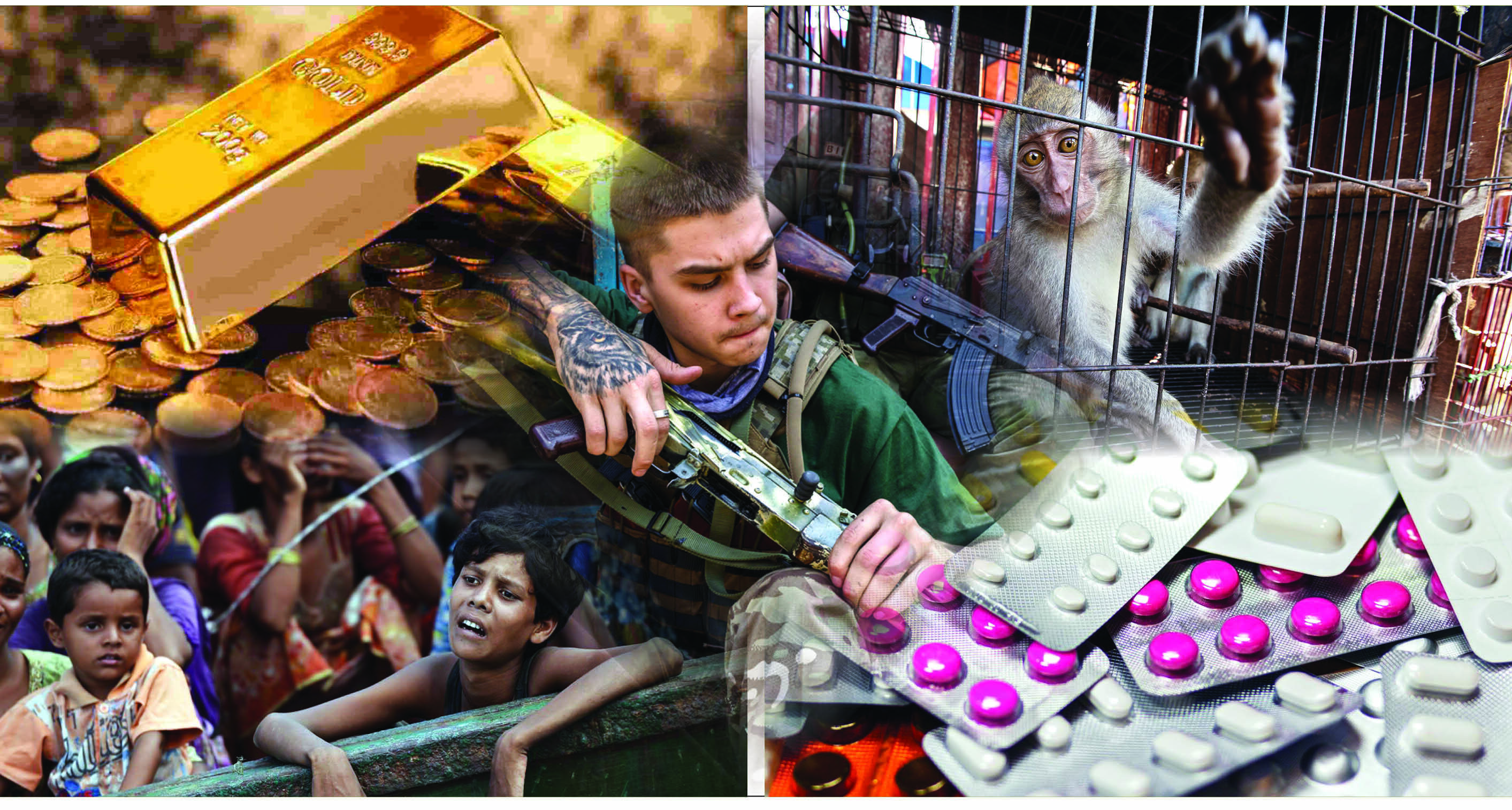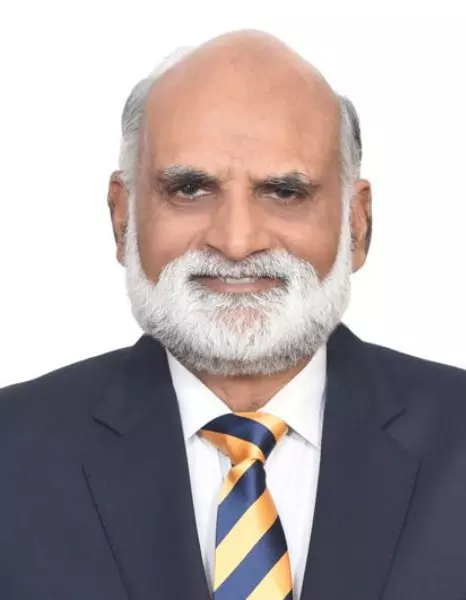Insidious interlinkage
Combating illicit trade and related crimes — emerging as fallouts of ongoing conflicts across the world — requires enhanced collaboration and bold policy reforms

It has been established beyond doubt that wars have destroyed communities and families, annihilated countries and have more than often disrupted the social and economic fabric of nations. In recent years, a lot of attention has been given to understanding the deep connection between wars and illicit trade. Interestingly, the Global Initiative Against Transnational Organized Crime's 2021 Global Organised Crime Index states that of the ten highest-scoring countries for criminality – the overwhelming majority are countries experiencing conflict.
Illicit activities and conflict-ridden areas have a symbiotic relationship. Wars change the priorities of state institutions and weaken their capacity to provide certain goods and services—including necessities to the civilian population. This in turn creates opportunities for nefarious actors to fill the gap, leading to unscrupulous activities of hoarding and black marketing of goods. Further, it also includes serious indirect repercussions which include crimes such as smuggling of drugs, tobacco, human & arms trafficking and so on which occur either concurrently within the war inflicted area or develop as a residual effect afterwards, impeding the growth of the economy over a longer-term.
This interconnectedness is not a new phenomenon and has been critically examined under the lens of historical evidence.
The journal of criminal law and criminology in its paper – 'Delinquency in Europe after World War II' — states that the aetiology of the crimes committed after the period of the war was rather complex. "During World War II, food became scarce, industry and business were almost paralysed and a large part of the population were unemployed; and in such conditions, criminality arose and expanded. This gave rise to new opportunities such as thefts of goods belonging to the army stock, the black market for cigarettes, food and garments, prostitution, traffic in weapons and theft in drugs to individuals who were inclined to crime" the paper read.
We saw a similar pattern with the end of the Cold War when the world was witnessing widespread corruption, organised crime, and drug trafficking. The book, 'Criminal Prosperity: Drug Trafficking, Money Laundering and Financial Crisis after the Cold War' draws linkages between these three phenomena based on evidence which points to their convergence in the 19th century and the comeback of illicit economy, drug trafficking, and corruption.
The ongoing Russian invasion of Ukraine, which marks 100 days of conflict, has had a devastating impact on the country's people and infrastructure, and has brought its economy to shambles. The Ukrainian government puts the economic costs of the war at USD 570 billion and counting. As the current war in Ukraine and Russia raises fears over the crime threat in Europe, those of us with long historical memories tend to look back at events of the past and wonder if history will repeat itself?
An internal EU document has warned of the increased risk of human trafficking, cyberattacks, infiltration of criminals, and circulation of weapons, drugs and illegal cigarettes in the European Union. It further states that disruptions in border controls and international sanctions may also pose a risk of intensifying heavily organised smuggling. For decades, Ukraine has been a key route for the westward movement of anything from Afghan heroin to black-market arms, contraband cigarettes and trafficked people. While efforts have been stepped up by the EU police and Europol to monitor potential threats from smuggling and other illicit activities, the war has only opened up opportunities for criminal networks to further their agenda, as the region continues to suffer from the pernicious consequences of such illegal activities.
Another report by the Global Initiative Against Transnational Organised Crime, published in April 2022, which talks about Russia, sanctions and illicit trade states that sanctioned Russian entities are likely to turn to illicit gold trading as a means of moving funds across international borders. The report which identifies India as one of the world's largest jewellery manufacturing centres, as well as a major gold smuggling hub, goes on to state that India's gold market could play a role in enabling Moscow and other sanctioned actors to evade sanctions. It highlights how weak due diligence on gold imports has led to gold being smuggled into India from different parts of the world. As illicit gold gets laundered into the legal market and re-exported as jewellery, it makes the country a conducive target for organised crime networks.
Directorate of Revenue Intelligence, India's apex anti-smuggling unit, acknowledges that in India gold smuggling occupies the prime position which is closely followed by narcotics and psychotropic substances, cigarettes, foreign currency, agricultural produce and wildlife flora and fauna. To tackle the abuse of gold markets, the Indian enforcement agencies have been working concertedly to build targeted responses against this menace.
While the challenge remains, it is heartening to see that over the years our agencies have only grown from strength to strength in preventing outright smuggling of goods, money laundering, and tax evasion through an effective and efficient network for intelligence gathering around the world. Indian customs and DRI in particular have ramped up the use of technology in their operations, such as AI, blockchain, machine learning and data analytics to augment their efficiency, accuracy and speed in curbing smuggling. This has most certainly helped the country in anticipating and combating the new modus operandi adopted by organised crime syndicates.
Today, wars and conflicts have given way to new, more complex and sophisticated threats. While troubled geopolitical undercurrents will remain in the days to come, increased collaborations, strengthening of systems and bold policy reforms in designing conflict prevention mechanisms and countering ensuing threats will be fundamental to not only maximise the effectiveness of our response but also will minimise the larger socio-economic harms.
The writer is Chairman, FICCI CASCADE and Senior VP, Corporate Affairs, ITC Ltd. Views expressed are personal



